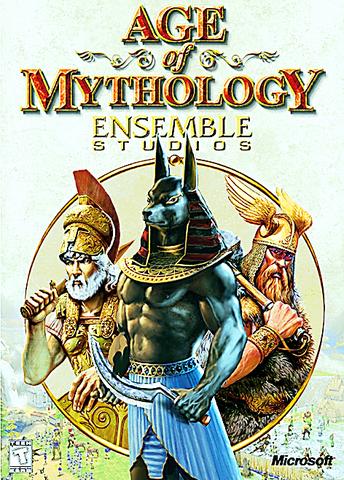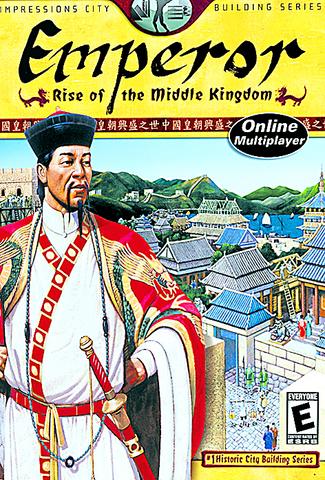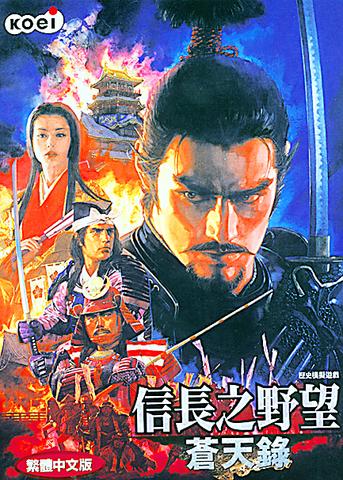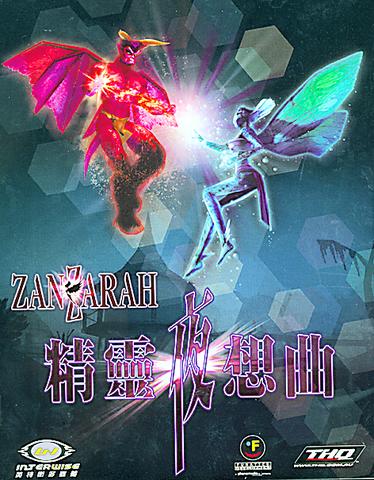Age of Mythology

Age of Mythology (AOM), which has been eagerly anticipated by game fans since it premiered at this year's E3, is set to be released in late autumn. Developed by Ensemble Studios after the award-winning Age of Empires (AOE,
The legendary figures in AOM come from three ancient civilizations -- Greece, northern Europe and Egypt. When Bruce Shelly, one of the developers of the Age games, visited Taiwan in August to promote the new game series, he was asked if it was possible for his group to add some Asian legends, especially Chinese ones, to the game. He declined to give a definite answer but promised to take it into consideration.

The goal of the new game is similar to that of the AOE series. The player needs to collect food, stones, gold and wood. The player must choose an ancient civilization at the start of the game, then gather resources, build armies and advance through four different ages as quickly as possible. Each time the player advances an age, he or she is free to choose different gods to get the benefit of their supernatural powers which, in turn, will influence the player's fighting strategies.

"The initial concept behind AOM is the same as that of AOE and AOK, but the fighting strategies are quite different. AOM includes three military systems -- basic military units, armies of heroes and god. ... Heroes beat gods; gods destroy mankind; and human beings kill heroes," said Chiang Wen-chung (
AOM features 36 single-play game battles, multi-link functions, powerful editorial tools, etc. Moreover, driven by a robust 3D engine, graphics are even truer to life than those of the newly launched War Craft 3.

"Especially when gods appear, the whole world is changed by the stunning 3D effects: the moon eclipses the sun and the sky is turned to darkness; the funnel-shaped clouds start transforming into tornados, swirling buildings into the sky, and meteor showers rain down from the heavens to smite their enemies," Chiang said.
Emperor: Rise of the Middle Kingdom
If you are not interested in destruction and killing, why not try something more constructive. Emperor: Rise of the Middle Kingdom will take you to China to enjoy the pride and power of dynasties and to change the history of the Middle Kingdom.
"Emperor is the first game that allows players to build a city together on the Net," said Hans Chuang (莊承翰), manager of Unalis, "Players have to work together to build some of the greatest Chinese structures in history, such as the Great Wall and the Grand Canal or to compete against each other to rule China."
The game is based on oriental theology and philosophy. The zodiac and feng shui (風水) play significant roles in the game. The player needs to choose one of the 12 animals of the Chinese zodiac and then receives the various benefits and characteristics that animal bestows on them. While building their city, players need to keep feng shui in mind and fit objects harmoniously into their environment.
Nobnaga's Ambition: Souten Roku (信長之野望:蒼天錄)
The setting of the game is the tumultuous period of Japan in the late 15th century to 17th century. It offers more than 1,500 characters for role-playing. The player first needs to acquire cities, train his or her armies and military commanders and then strategize to conquer other cities or territories (the total is around 150) and ultimately unify a divided Japan.
Compared with the real-time strategy games of AOE, the war games of Nobnaga's Ambition instead focus on interior administration and the training of military commanders.
"It is not like the War Craft series or AOE series. The game player need to manage a number of statistic graphics, such as the evaluation of generals' capability, the military and political information of enemies as well as the progress of interior construction. The player is required to distribute resources and manpower," said Sammy Liu (
Zanzarah: The Hidden Portal (精靈夜想曲)
Zanzarah is actually the European edition of "Pokemon." The game is about an 18-year-old girl's adventure in a fantasy world called Zanzarah. On her birthday, she breaks in to Zanzarah and the only way for her to return to the real world is to help the fairies fight against vicious powers. The girl explores the realm of the fairies and learns to use powers she never knew she had to find fairies and conquer them.
"At the start of the game, the player has only one fairy. She needs to fight with all kinds of animals in the wild and tame them so as to make them fight for her later," said Interwise Vice President Dell Yu (
"Although Zanzarah is an adventure game, something that makes it unique is that once the team of fighters is composed, the game becomes a first-person shooting game," said Antonio Lu (
"The greatest satisfaction comes from collecting pictures of all kinds of fairies and from creating the best team for fighting," Lu said. -- Lin Chieh-yu

June 23 to June 29 After capturing the walled city of Hsinchu on June 22, 1895, the Japanese hoped to quickly push south and seize control of Taiwan’s entire west coast — but their advance was stalled for more than a month. Not only did local Hakka fighters continue to cause them headaches, resistance forces even attempted to retake the city three times. “We had planned to occupy Anping (Tainan) and Takao (Kaohsiung) as soon as possible, but ever since we took Hsinchu, nearby bandits proclaiming to be ‘righteous people’ (義民) have been destroying train tracks and electrical cables, and gathering in villages

This year will go down in the history books. Taiwan faces enormous turmoil and uncertainty in the coming months. Which political parties are in a good position to handle big changes? All of the main parties are beset with challenges. Taking stock, this column examined the Taiwan People’s Party (TPP) (“Huang Kuo-chang’s choking the life out of the TPP,” May 28, page 12), the Democratic Progressive Party (DPP) (“Challenges amid choppy waters for the DPP,” June 14, page 12) and the Chinese Nationalist Party (KMT) (“KMT struggles to seize opportunities as ‘interesting times’ loom,” June 20, page 11). Times like these can

Dr. Y. Tony Yang, Associate Dean of Health Policy and Population Science at George Washington University, argued last week in a piece for the Taipei Times about former president Ma Ying-jeou (馬英九) leading a student delegation to the People’s Republic of China (PRC) that, “The real question is not whether Ma’s visit helps or hurts Taiwan — it is why Taiwan lacks a sophisticated, multi-track approach to one of the most complex geopolitical relationships in the world” (“Ma’s Visit, DPP’s Blind Spot,” June 18, page 8). Yang contends that the Democratic Progressive Party (DPP) has a blind spot: “By treating any

Swooping low over the banks of a Nile River tributary, an aid flight run by retired American military officers released a stream of food-stuffed sacks over a town emptied by fighting in South Sudan, a country wracked by conflict. Last week’s air drop was the latest in a controversial development — private contracting firms led by former US intelligence officers and military veterans delivering aid to some of the world’s deadliest conflict zones, in operations organized with governments that are combatants in the conflicts. The moves are roiling the global aid community, which warns of a more militarized, politicized and profit-seeking trend